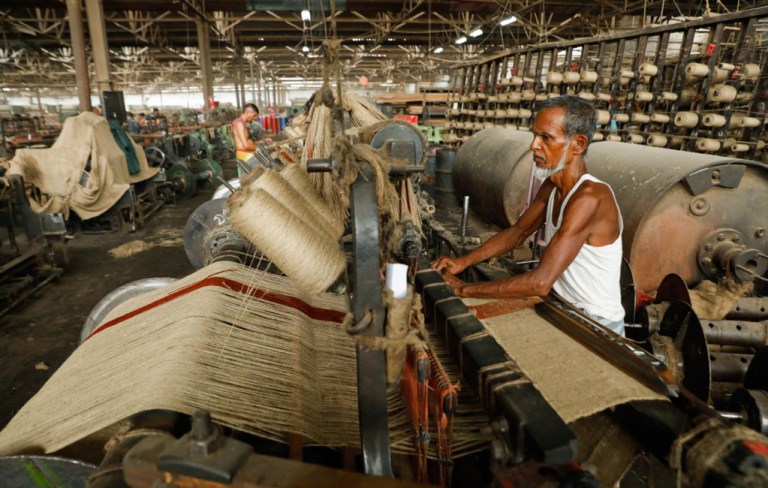Bangladesh: 25 state-run jute mills shut, 45,000 workers laid off. ‘Suicidal’ says BAFLF

In a surprise move, on June 26, the Bangladesh government announced the shutdown of the 25 state-run jute mills and laid off about 45,000 permanent and contractual workers.
According to various sources, over the past years, government officials have made a road map to close jute mills through a ‘golden handshake.’ In an article for La Via Campesina’s South Asia blog, the Bangladesh Agricultural and Farm Labourers’ Federation (BAFLF) has alleged that the reason behind this is to hand over huge assets, including factories, to private players under enabled through Private Public Partnership[PPP] arrangements. BAFLF is a member of La Via Campesina.
“The government is trying to hide the institutional looting and corruption by identifying jute mills as loss-making units and blaming it on the workers. But the reality is Bangladesh Jute Mills Corporation (BJMC)’s irregularities in jute purchase, poor management, and lack of an organized marketing strategy are the root causes of financial losses.”
writes Golam Sorowor from BAFLF.
The government’s push for privatization is indeed a policy of ‘One doth the scath and another hath the scorn.’ he argues. This announcement by the government, he adds, is a suicidal decision to destroy the jute industry.
BAFLF has also alleged that there was no discussion with peasants or workers before, before this drastic decision. The government pushed these changes while the country is reeling under the effects of a terrible pandemic like COVID-19.
“The pandemic has already ruined the livelihood of the people. About 10.5 million people in the country have lost their jobs and are now unemployed. Now the jute mill workers are also added to the unemployed list. About 25,000 workers of state-owned jute mills lost their jobs, and millions of people who depended on them would have to suffer at the government’s hands. It is entirely unjust and inhumane to force the jute mill workers to change their profession by handing over some money when the pandemic is wreaking havoc on the country’s economy.”, insists the article.
